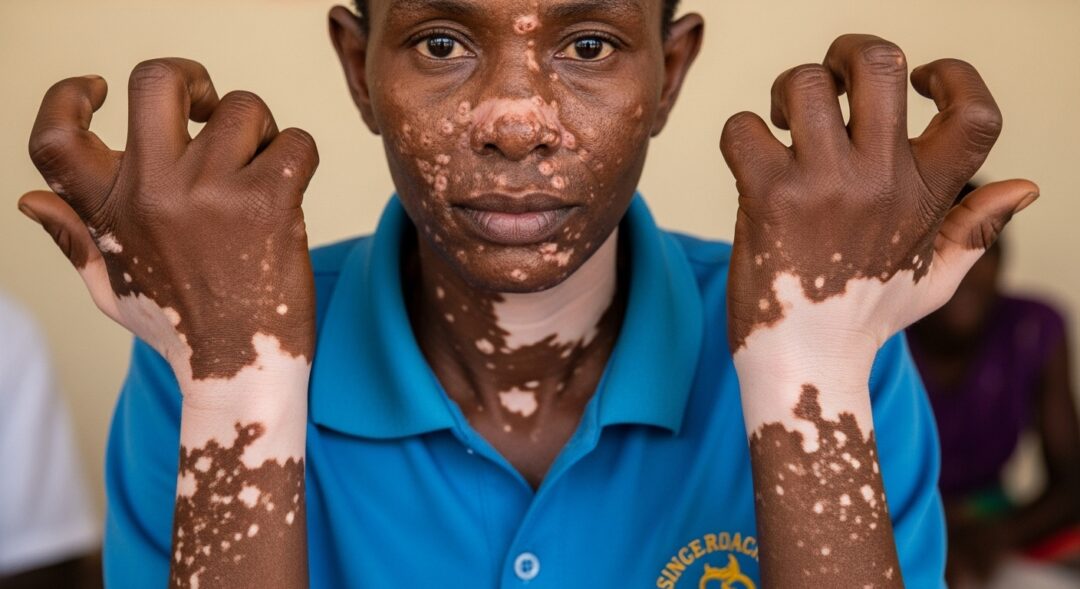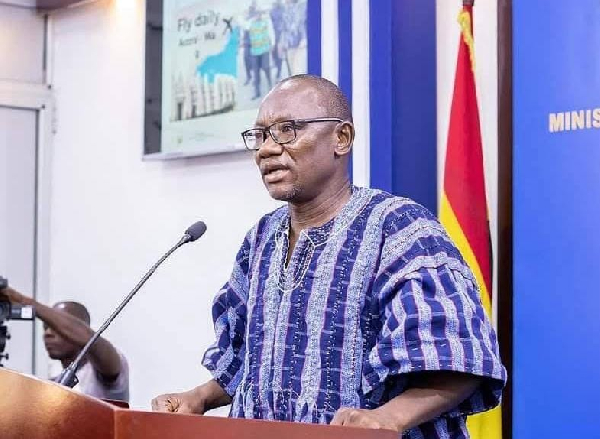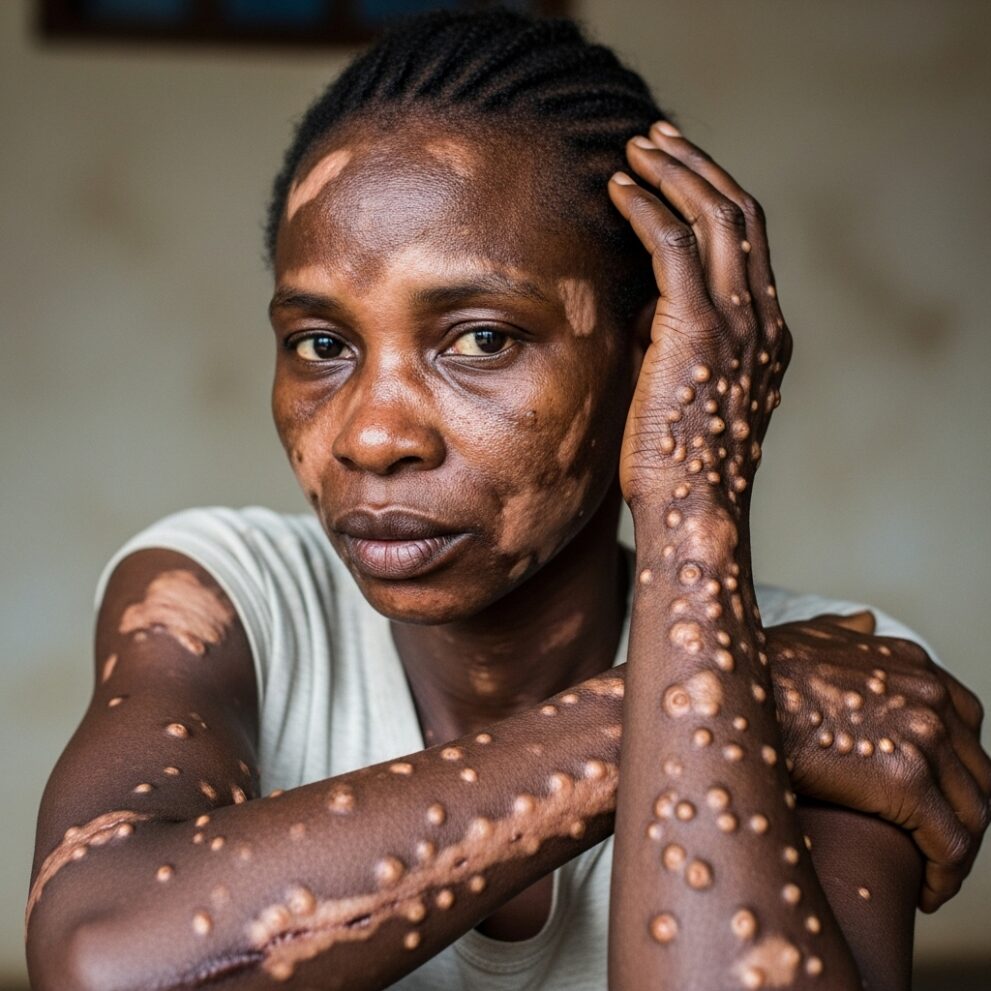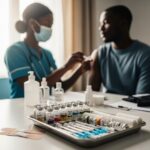On September 25, 2025, Hope for Future Generations (HFFG), a non-governmental organization dedicated to improving health and social outcomes in Ghana, renewed its call for stronger partnerships and sustained support to tackle Skin Neglected Tropical Diseases (Skin-NTDs). Speaking at a bi-annual project update and dialogue meeting in Koforidua, the organization emphasized the importance of community-led interventions in combating these debilitating conditions, which continue to affect vulnerable populations across the Eastern Region.
The meeting brought together stakeholders, including members of the Regional Project Management Committee, to review progress made under the “Strengthening Community System to scale-up Community-led response interventions to end Neglected Tropical Diseases (Skin-NTDs)” project. This initiative, implemented by HFFG in collaboration with Rural Watch and supported technically by the Ghana Health Service, is funded by ANESVAD and currently operates in seven districts within the Eastern Region. The districts include Birim South, Birim North, Akyemansa, Denkyembour, Kwaebibirim, Lower Manya Krobo, and Okere, all of which are endemic areas where Skin-NTDs remain a pressing public health challenge.
Mrs. Josephine Sackey, a Board Member of HFFG, addressed participants at the meeting and highlighted the importance of sustaining the project’s momentum. She explained that the initiative was not only about providing treatment but also about raising awareness, reducing stigma, and mobilizing community support for affected individuals. “This is to ensure that the implementation of the project in parts of the Eastern Region achieved desirable results,” she said, stressing that partnerships with the Ghana Health Service must be strengthened to guarantee long-term success. Her remarks reflected the organization’s belief that community engagement and institutional collaboration are essential in addressing diseases that often thrive in conditions of poverty and neglect.
The project coordinator, Ms. Carmen Narh, provided an overview of the achievements recorded during the first phase of the initiative. She noted that one of the key strategies had been the training of selected community members as lay counsellors. These counsellors were equipped to provide psychological support to affected persons and to help identify cases at the community level.
According to her, this approach had proven effective, as most Skin-NTD cases identified were successfully linked to treatment. In addition, economic support was provided to affected individuals in the implementing districts, helping them to regain livelihoods and reduce the social and financial burden of the disease. Narh’s presentation highlighted the dual focus of the project: addressing the medical needs of patients while also tackling the socioeconomic challenges that accompany Skin-NTDs.

Skin-NTDs, which include conditions such as leprosy, yaws, and Buruli ulcer, are often stigmatized, leaving affected individuals isolated and marginalized. The HFFG project has therefore placed significant emphasis on sensitization and advocacy, aiming to change community perceptions and foster inclusion. By involving local leaders, health workers, and community members, the initiative seeks to create an environment where affected persons can access care without fear of discrimination. The dialogue meeting in Koforidua served as a platform to reinforce this message and to encourage stakeholders to continue supporting awareness campaigns.
Dr. Damien Punguyire, the Eastern Regional Health Director, assured HFFG of the Directorate’s commitment to sustaining the project and achieving its desired outcomes. He praised the organization’s efforts and reiterated that the Ghana Health Service would continue to provide technical backing to ensure that interventions are effective and scalable. His assurance reflected the government’s recognition of the importance of partnerships with civil society organizations in addressing neglected diseases that disproportionately affect marginalized communities.
The second phase of the project, which commenced earlier this year, is focused on scaling up interventions in the seven endemic districts. Building on the successes of the first phase, the initiative aims to expand its reach, strengthen community systems, and ensure that more individuals receive timely diagnosis and treatment. The inclusion of economic support measures also signals a holistic approach, recognizing that health outcomes are closely linked to social and financial stability.
The dialogue meeting highlighted the broader significance of the project beyond the immediate health benefits. By reducing stigma and empowering communities, the initiative contributes to social cohesion and resilience. It also aligns with Ghana’s broader public health goals, which emphasize community participation and the integration of health services into local systems. The involvement of organizations like Rural Watch and the support of international partners such as ANESVAD demonstrate the importance of multi-stakeholder collaboration in tackling complex health challenges.

As the project moves forward, HFFG has called for continued support from both local and international partners. The organization believes that sustained investment and collaboration are necessary to achieve lasting results. Mrs. Sackey’s appeal for strengthened partnerships with the Ghana Health Service reflects this commitment to ensuring that interventions are not only impactful but also sustainable. The
success of the project in linking cases to treatment and providing economic support underscores the potential for community-led approaches to transform health outcomes in endemic regions. The fight against Skin-NTDs in Ghana is far from over, but initiatives like the HFFG project offer hope that progress can be made through collective action. By combining medical treatment, psychological support, economic empowerment, and community sensitization, the project addresses the multifaceted nature of these diseases. The dialogue meeting in Koforidua was a reminder that while challenges remain, the path forward lies in collaboration, innovation, and a shared commitment to improving the lives of those affected.
In the words of Dr. Punguyire, the commitment of the Regional Health Directorate to support and sustain the project is a testament to the importance of partnerships in public health. As Ghana continues to confront the burden of neglected tropical diseases, the efforts of organizations like HFFG, supported by local and international partners, will be crucial in ensuring that no community is left behind.
Source: Ghana News Agency – Hope for Future Generations Ghana calls for concerted effort to tackle Skin-NTDs gna.org.gh



